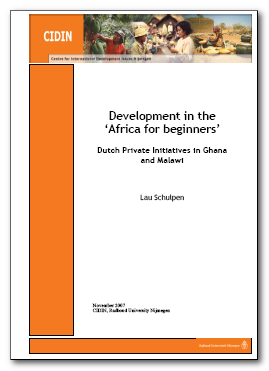Passion, the Participatory Web, and the Potentials of ICT
 I haven’t been able to go to the Web2ForDev meetings so far, but have encountered the typical problems of ICT and knowledge sharing in rural areas around the world. So when Christian Kreutz approached me to contribute to a publication by GTZ, the Deutsche Gesellschaft for Technische Zusammenarbeit (German Technical Cooperation), on how NABUUR offered a new way of connecting people and letting knowledge flow, I got in touch with Raul Caceres, who has done amazing work as a NABUUR volunteer, resulting in a United Nations Volunteer of the Year Award, and an invitation to speak at the Nobel Summit on Public Services. Together, we wrote one of the seven articles in “The Participatory Web – New Potentials of ICT in Rural Areas”.
I haven’t been able to go to the Web2ForDev meetings so far, but have encountered the typical problems of ICT and knowledge sharing in rural areas around the world. So when Christian Kreutz approached me to contribute to a publication by GTZ, the Deutsche Gesellschaft for Technische Zusammenarbeit (German Technical Cooperation), on how NABUUR offered a new way of connecting people and letting knowledge flow, I got in touch with Raul Caceres, who has done amazing work as a NABUUR volunteer, resulting in a United Nations Volunteer of the Year Award, and an invitation to speak at the Nobel Summit on Public Services. Together, we wrote one of the seven articles in “The Participatory Web – New Potentials of ICT in Rural Areas”.
Christian offers a great overview of the publication on his blog, and reminds us: “Obvious challenges are low connectivity particularly in rural areas, low literacy rate, lack of media competence to use the web and well function models to provide and target information.” But when glancing over some of the other excellent contributions, and reflecting on our own, I felt we mainly write about the functional, but somehow don’t get across that one aspect that really makes it tick: people’s passion.
In working with NABUUR over a last few years now, meeting volunteers, and reading, seeing, and hearing the stories, there is one crucial aspect that makes it so different: passion. Especially when people connect one-to-one, peer-to-peer. The one big challenge that’s not in Christian’s list, and often overseen: organisation. Organisations are important, do wonderful work too, but from within an organisation, it’s often hard to take an outside perspective, and ask the question: what if we try to do this without an organisation? What do organisations do to people’s passion?
Connecting people with passion makes challenges more like steps on the way: you don’t look at the challenge, you look at what’s behind it. And overcoming the challenge makes you feel even more connected than you already did. Life won’t be instantly easier, but life will be fueled with an energy that transforms you. And thereby it transforms a little bit of society.
- Willis Whitlock wrote “Have You Met Stella? Let Me Introduce You”, a touching story on how he was surfing the web, and connected with the community of Kimilili in Kenya, and some of the other online volunteers there. Oh, and he is now helping them blogging about the community and brings in his knowledge.
- David Sabiiti Kibagoo organised a Christmas party for the children in Kyomo, in Kenya, with help from online volunteers. He posted a whole bunch of party pictures. And a dozen things he hopes to achieve in 2009, maybe you can help.
These are just two examples around NABUUR. They give me energy and inspiration to do what I do. It’s organising, and all the way across the “mission, vision, strategy” paradigm. But not based on functional interactions with a motivational coat of paint. Rather than looking at Return On Investment (or Return On Insight), look at Return On Passion. Then look at these tools again, and at the way you can organise around them.

.jpg) We’ve got our first Nivocer office space this month! My business partner Jaap-André is based close to Enschede, in the east of The Netherlands, and
We’ve got our first Nivocer office space this month! My business partner Jaap-André is based close to Enschede, in the east of The Netherlands, and 
